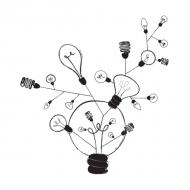Are you looking to increase the amount of confidence you have in your social life, work environment, financial security, and relationship prospects? If you’ve been wondering what the secret is behind feeling massive amounts of confidence in every aspect of your life, then look no further. Today we’ll be discussing the formula for confidence—it’s incredibly easy, yet powerful, and it will have you opening doors to potential in your life that you never knew existed.
I first heard the formula for confidence while attending a lecture with Dr. Paul, a psychiatrist who teaches confidence in dating and other areas of life. The simplicity of it stuck with me as a tactic that would help many people in various situations. Here’s the formula:
Fear + Act of Courage = Confidence.
Now, of course, this isn’t the only aspect to building unstoppable confidence—there are countless tools that can help you on your way to reaching your full potential (self-talk, letting go of self-sabotage, communication techniques, etc.), and I teach them all through my many programs, such as The Confidence Code and Confidence Unleashed. When it comes to taking bold action and using these tools cohesively, however, this formula is imperative to success.
In order to move forward in building your confidence—regardless of the situation—you must act courageously in the face of your fear. It’s that simple.
If you’re not applying this formula, it won’t matter how many techniques you apply or how many courses you take—you’ll never develop long-term confidence. So, why is this formula so effective? Because it addresses the main problem we all face as human beings: fear.
Fear is the one thing that is holding you back. It causes discomfort and shows you where the edge of your comfort zone lies . . . and no one likes being made aware of their limitations. Think about it: where do you draw the line when it comes to taking bold action in your life? Maybe you avoid social situations in which you will be forced to interact with strangers; perhaps you refuse to speak up in meetings at work; or maybe you refuse to stand up to your in-laws when they criticize you. In each of these cases, you’re connecting with the edge of your comfort zone and the fear is keeping you from experiencing your power.
The most common human pattern is to avoid fear. In order to break this pattern, we need to face the Fear and participate in an Act of Courage. You have to approach your edge and push through it—speak with a stranger; give a presentation at work; tell Dad to back off! Only by facing your fear can you begin to understand that it does not control you:
Fear + Act of Courage = Confidence.
Unfortunately, the first argument that I hear from my clients at this point is that their fears will make them fail at their Act of Courage, which will just make them feel even worse. First of all, that’s not going to happen. I don’t mean that you won’t fail—you very well may fail! Just having faced your fear, however, will prove to you that the consequences of that failure were not nearly as horrifying as you might have imagined. Secondly, practicing self-compassion is the part of the process that makes it effective long term.







